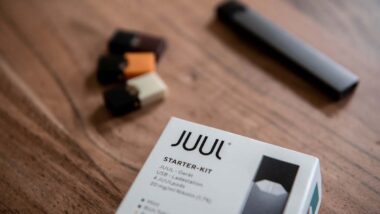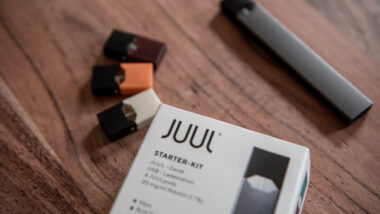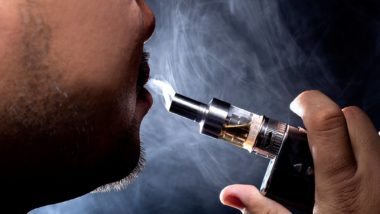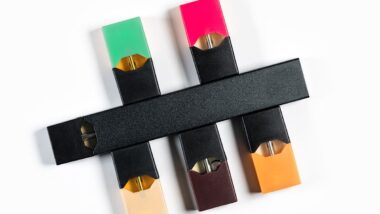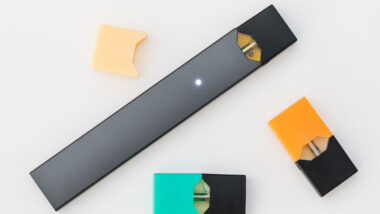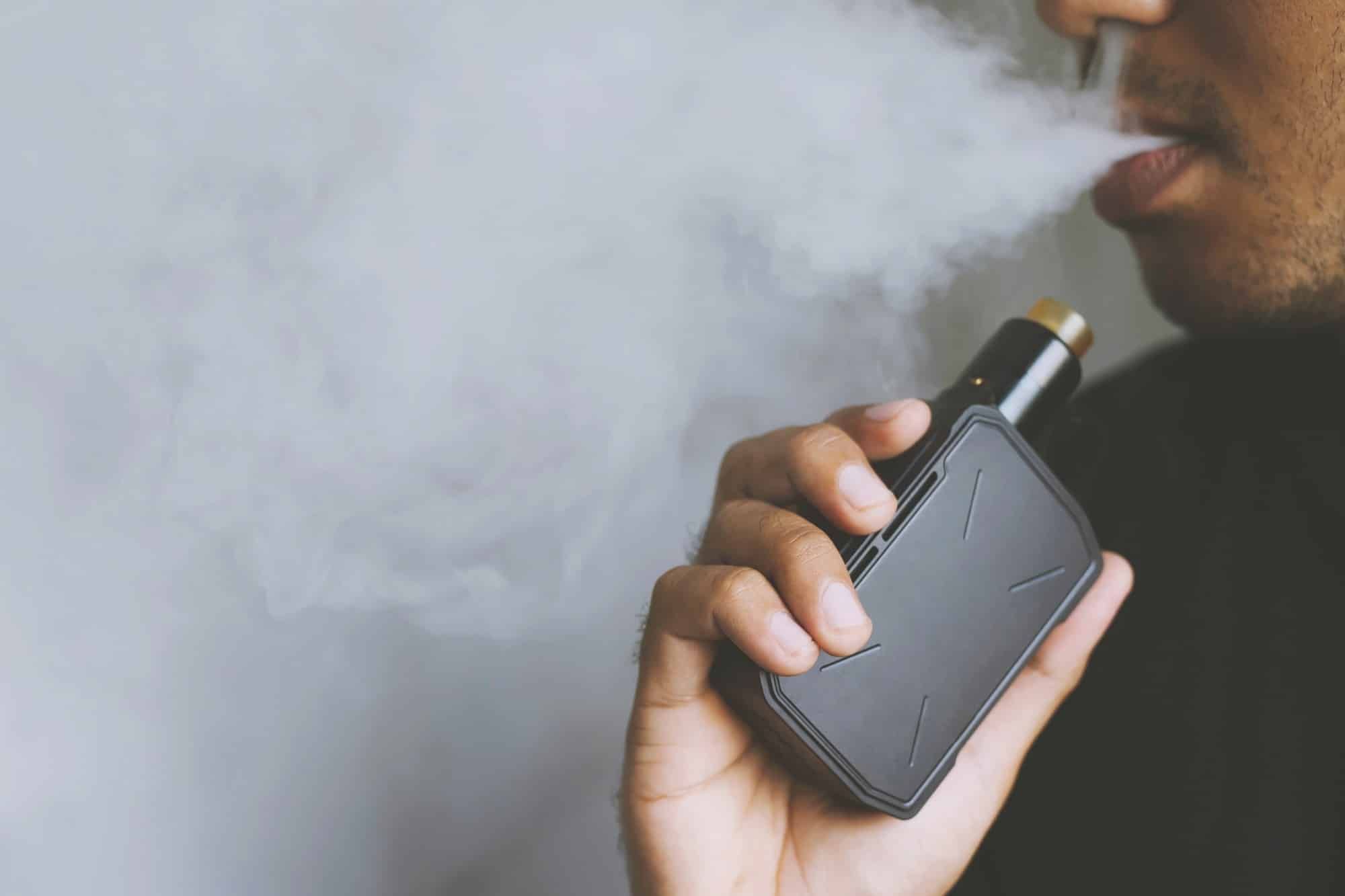
Fruity JUUL pod flavors may have contributed to the vaping epidemic now facing America’s teens, according to consumer advocates.
What’s Inside JUUL Pods?
According to JUUL Labs, Juul pods contain a variety of ingredients including the following:
- Nicotine: JUUL pods reportedly use “pharmaceutical grade” nicotine available at 3 or 5 percent concentrations.
- Propylene glycol and glycerin: These clear liquids reportedly serve as the base for many e-cigarette liquids – including JUUL pods. The liquids create a visible vapor when inhaled through the vape and exhaled from the lungs.
- Benzoic acid: When combined with nicotine, this ingredient reportedly created nicotine salts. JUUL Labs argues that this formulation helps create “cigarette-like satisfaction.”
- Flavor: Natural and artificial flavors are reportedly used to create a “specific taste profile” for each of the JUUL pod flavors.
What Flavors of JUUL Pods Are There?
Before JUUL pod flavors started to be banned, the e-cigarette company sold a variety of flavors including mango, fruit, cucumber, and cream. The company previously made the decision to sell these pods only online, and later voluntarily stopped the sale of flavored JUUL pods.
Now, the Trump administration has cracked down on flavored e-cigarette products and plans to allow only tobacco and menthol varieties to be sold in pod form.
Following the ban of the previously popular JUUL flavors, the company sells only three flavors: Virginia Tobacco, Classic Tobacco, and Menthol.
How Do JUUL Pod Flavors Put Youth at Risk?
Part of the focus on JUUL flavors stems from the prominence of these products among teenage users.
In 2019, two studies published in the Journal of the American Medical Association found that JUUL-branded e-cigarette products were extremely popular among young individuals.
One of the studies, in which FDA researchers analyzed data from the National Youth Tobacco Survey by the Centers for Disease Control and Prevention (CDC), found that 27.5 percent of high school students use e-cigarettes and 10.5 percent of eighth-graders also use the products. According to the researchers, over half of both of these groups reported using JUUL products.
JUUL usage was so popular that the researchers noted that their results may be skewed due to the fact that “‘Juuling’ has become synonymous with vaping for some teens.”

JUUL has previously been blamed for the teenage vaping crisis. A study of JUUL’s marketing by the Stanford Research Into the Impact of Tobacco Advertising found that much of the early marketing by the company “was patently youth-oriented.”
Although more recent marketing targets adult smokers and stresses JUUL products as a cigarette alternative, advertisements between 2015 and 2018 reportedly used youthful influencers, fun flavors, bright colors, and attractive models to promote JUUL products. The Stanford researchers concluded that the use of social media was an “innovation” which contributed to JUUL’s success among young users.
“It’s impossible to review the data [in the paper] and conclude anything other than the marketing is the major reason this product became so popular among young people,” Matt Myers, president of the Campaign for Tobacco-Free Kids, told Vox.
A JUUL spokesperson told Vox that these advertisements were “short-lived, intended for adults” in addition to taking place “well before JUUL gained any meaningful market share.”
“Our current advertising features testimonials from former adult smokers who made the switch off combustible tobacco with the JUUL device, and we are ensuring that this campaign is targeted at adult smokers age 35 and up,” the JUUL spokesperson said.
Will the FDA Ban Make a Difference?
Although the government has limited the sale of only flavored e-cigarette pods, officials hope that these measures will contribute to the lessening use of JUUL and other vaping products by young people. Youth users are reportedly more likely to use flavored pod products than open tank e-cigarette systems which remain available for fruity flavors.
“As we work to combat the troubling epidemic of youth e-cigarette use, the enforcement policy we’re issuing today confirms our commitment to dramatically limit children’s access to certain flavored e-cigarette products we know are so appealing to them— so-called cartridge-based products that are both easy to use and easily concealable,” FDA Commissioner Stephen Hahn said in a January statement.
“We will continue to use our full regulatory authority thoughtfully and thoroughly to tackle this alarming crisis that’s affecting children, families, schools, and communities.”
The FDA’s ban represents a stricter course of action than its previous efforts to limit the attraction of vapes to teens. In 2018, the FDA urged companies to stop selling some fruit-flavored vapes, in the hopes that if these flavors were no longer on the market, teens would lose interest in vapes altogether.
Unfortunately, new research suggests that this did not have the desired effect. Though JUUL did pull some JUUL pod flavors off the market, instead of abandoning e-cigarettes altogether, teens reportedly just chose other flavors that were still available — like menthol and tobacco.
The research was conducted by the American Cancer Society and was published in the American Journal of Public Health. According to lead researcher Alex Liber, “Companies’ attempts to self-impose their own restrictions are unlikely to improve public health.”
He went on to explain that any economic impact expected with the choice to pull some flavors off the market was “quickly offset” by an increase in sales in JUUL’s other flavors. Reportedly, JUUL’s move to pull fruity flavors from the market also had the effect of boosting sales of similar products by JUUL’s competitors.
Researchers now hope that the government’s choice to ban certain flavors outright will have more of an effect on the teen market than JUUL’s self-imposed ban did. However, experts anticipate that what would really have a notable effect on young people’s purchases would be a tax hike. J. Taylor Hays, MD Director of the Nicotine Dependence Center at Mayo Clinic states, “youth are among the most price sensitive user group and will reduce the purchase of these products if the price goes up,” as opposed to finding an alternative brand or flavor.
Join a Free JUUL Use in Schools Class Action Lawsuit Investigation
If you are a school administrator who has seen the negative impact of e-cigarettes on campus and you would like to hold e-cigarette manufacturers accountable for their marketing of their products to youth, submit your information now for a free case evaluation.
If you qualify, an experienced e-cigarette attorney who has worked with other school districts will contact you to discuss your options.
This article is not legal advice. It is presented
for informational purposes only.
ATTORNEY ADVERTISING
Top Class Actions is a Proud Member of the American Bar Association
LEGAL INFORMATION IS NOT LEGAL ADVICE
Top Class Actions Legal Statement
©2008 – 2025 Top Class Actions® LLC
Various Trademarks held by their respective owners
This website is not intended for viewing or usage by European Union citizens.
Get Help – It’s Free
Join a Free JUUL Use in Schools Class Action Lawsuit Investigation
If you qualify, an attorney will contact you to discuss the details of your potential case at no charge to you.
PLEASE NOTE: If you want to participate in this investigation, it is imperative that you reply to the law firm if they call or email you. Failing to do so may result in you not getting signed up as a client or getting you dropped as a client.
E-mail any problems with this form to:
[email protected].
Oops! We could not locate your form.


